 (By Paolo Propato, LAc) Uncertainty has been the global theme of 2020. The virus, the economy, the election, the school year, the climate… they have affected all of us. Typically with an intro like that, an article about a meditation technique or the benefits of acupuncture on stress should follow. Most of you know by now that acupuncture is beneficial for stress and our community meditation classes still exist online. So, instead I’d like to write about what you teach me everyday. Patients come into our clinic worried about their jobs, kids, and the issues mentioned above. No matter what preoccupies them, they all keep moving forward, finding ways to make it work. Whether they have autoimmune disease, sciatica, depression, anxiety, you name it, they all find ways to keep moving ahead. Despite what is going on physically or mentally, they make an effort to be grounded and more balanced. Many become innovators and begin to change their lives, doing things they never thought they could do with their diets, bodies and minds. Some of these changes are very small and some drastic but all are done in the spirit of adaptability-- responding to what life is asking of them at this point. These patients remind me of a story my wife once told me. One night we were speaking about our son going back to school, and she paused mid-sentence as her eyes filled with tears. I sat watching in silence giving her space to process whatever was coming to her mind. “Growing up in Iran during the Iran-Iraq War, there was a period that was really bad. We had run into a shelter during school when we heard the sound of planes bombing from above. We waited in long lines for milk and basic necessities."
1 Comment
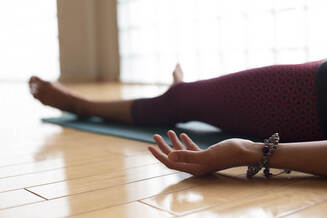 (By Grace Rollins, MS, LAc) You may think that as an acupuncturist my most important duty is to “put pins in people,” as many of my patients like to phrase it. This is true to a degree, but I don’t always use needles to treat people, and when I do there’s something even more basic and arguably more important that I do for each patient that comes in. It sounds simple, but is easier said than done: It’s to get every patient to lay flat, quiet, and still. Hyper-vigilance is common among many of my patients as a consequence of trauma, or a function of our modern over-busy, over-stimulated, over-stressed way of life. It manifests as nervousness, anxiety, muscle tension and guarding, digestive issues, over-sensitivity to pain, sleep disorders, blood pressure issues, hormonal imbalances, cognitive and behavioral disorders, immune imbalances, and even inflammation and poor injury healing. It’s the kind of root cause that most medical doctors are helpless to address, yet relates to so many of our society’s chronic health issues. Over the years I've observed many different patterns of vigilance in my patients. There are those who, when asked to lay down, stay upright on the table while trying to talk or explain things to me, and need to be told another time or two to lay down so I can start examining. There are those who, upon laying down, seem uncomfortable with stillness, talking a lot (often with the hands), asking a lot of questions, keeping the eyes open and watchful, and tensing up the body. Hyper-vigilant patients often take shallow breaths at a fast pace, and they tend to be more intolerant of needle sensation. I consider some nervousness to be normal if experiencing acupuncture for the very first time, but I see guarding sometimes in patients I've known for years and whom I know to look forward to their appointments. It’s a clear sign to me that their nervous system is in an over-stressed, over-protective state. More of a problem in recent years, I also get patients who delay in putting their phones away or even must have one at their side. I can sympathize with the occasional pending emergency or urgent matter, but for some folks this is a constant need. Being unable to tolerate an hour of isolation is a form of extreme vigilance. From fight-or-flight to rest, assimilate and heal How easily a patient can lay flat, tolerate stillness and endure disconnection from their phone can tell me a lot about the state of their autonomic nervous system (ANS), the branch of our nervous system that controls many of our autonomic functions such as heart rate, digestion and blood pressure. When the autonomics are more sympathetic branch-dominant, the patient is revved up, in fight-or-flight mode. In a sympathetic dominant-state it's hard to sleep, digest properly and repair the body. Blood circulation is impeded, muscles get tight (especially in the neck and back) and the mind tends to feel anxious. 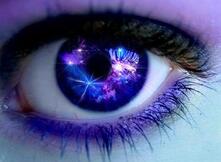 (By Paolo Propato, LAc) Take a moment to read this piece by piece. Sit with what is said for a few seconds or minutes before moving on. Close your eyes, breathe and go inward. Your mind will keep talking. Let it. Just don’t participate. Please take a few moments to do so... I’ll wait. You may have noticed your thoughts. You are able to watch the thoughts as a separate entity. See if this is true. Do not interact with these thoughts... just watch them.  (By Paolo Propato, LAc) People have been contacting me about finding the time to practice meditation. Being home in quarantine, many are still working, home-schooling their children, doing household chores, and the list goes on. St. Paul writes to "pray unceasingly." These moments of work, children and chores are great opportunities for practice. Cooking with Love In many cultures, cooking is a way to express love and to deny food offered to you can be perceived as a rejection of love. It is a giving of the Earth, our time and attention. What is Love, but a giving of ourselves? In this spirit I will share a passage from the book Spiritual Ecology: 10 Practices to Reawaken the Sacred in Everyday Life by Llewellyn Vaughn Lee: 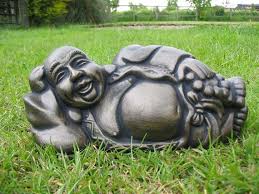 (By Paolo Propato, LAc) A businessman was angry that his children were going to the Buddha daily to sit with him in meditation. The man thought they were wasting their lives sitting around doing nothing. One day, filled with anger, he made his way through the gathering of followers and approached the Buddha. At that moment the man's mind went blank. Unable to make out any words but filled with anger, he looked at the Buddha and spat in his face. The stunned crowd waited for the Buddha's response. But he simply smiled, a response that was enough to make the man storm off in anger and confusion. The man couldn't shake off the response of the Buddha's smile. He tossed and turned all night. The next morning he went back, and everyone watched to see what would transpire. The man walked up and asked forgiveness for his actions the day before. The Buddha replied, “I can not excuse you.” His followers were shocked that he would reply in such a manner. “He is the Compassionate One, how could he reply in such a way?” (By Grace Rollins, LAc) Since the COVID-19 “Stay at Home” order went into effect I’ve been offering an online Qi Gong class at least once weekly. In spite of the awkwardness of a video interface (with occasional tech snafus!) I’ve become more and more enthusiastic about this offering as the weeks go by. It’s been ten years since I taught a regular Qi Gong class to the public, and earlier this year before the pandemic went down, my instincts were already saying it’s time to go back to making Qi Gong more available to our patients and community. Looks like my instincts were on point...
I wouldn’t consider myself a Qi Gong practitioner with any elite skills or special insight, but even at my current level of practice I have to say it’s one of the more profound self-healing activities that I know. I took formal classes when I was in New York City for graduate school, and was fortunate to learn fundamentals descended from an ancient, reputable Xing Yi lineage. To be honest, what I learned is very basic, and at that time I even took it for granted. I was in my 20s, healthy, living an intense New Yorker lifestyle, and also immersed in rigorous daily Aikido and Zen training. Qi Gong, which amounts to some slow, controlled movements coordinated with the breath, did not dazzle by comparison. I started to realize the importance of Qi Gong when the injuries started coming.  (By Paolo Propato, LAc) Once a Sufi Master was asked: "Who guided you in the Path?" He said: "A dog. One day I saw a dog, almost dead with thirst, standing by the river's edge. Every time he looked at his reflection in the water he was frightened, and withdrew, because he thought there was another dog. "Finally, such was his necessity, he cast away fear and leapt into the water. At that very moment, the other dog vanished. The barrier between him and what he sought--which was himself--melted away. "In this same way my obstacle--my own self--vanished." This past week I’ve been talking to one friend after another in Iran and Italy listening to their fears and their new reality, as I assess how mentally far behind we are. 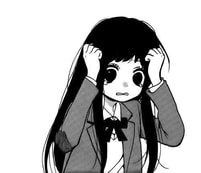 When you don't know what to do... return to the basics. So, let's review some basics concerning self care in the face of something simple and ubiquitous-- stress. Stress is going to raise your cortisol, disrupt your sleep and suppress your host immunity. Here are four tips-- so basic yet so important-- on tackling stress effectively. Breathe! A method we always go back to here at the clinic is helping our patients find their breath. This link takes you to a helpful video on diaphragmatic breathing, a proven way to calm your body and mind and improve immunity. Move Exercise is essential to healthy lymphatic and immune function. The light, fresh air and sunshine as well as the exercise will also do wonders for your mood and stress. At minimum go for some nice long walks each day. Also do a little stretching, yoga or Qi Gong at home every day. Sleep Set aside enough time to get sleep each night. All that diaphragmatic breathing and exercise certainly should help! Drinking alcohol will actually disrupt your sleep (causing that early am wake up) in spite of our cultural beliefs to the otherwise, and also is known to really suppress your immune system. Avoid screens and bright lights during the couple of hours before bed. Laugh It's a time-tested stress buster and disease breaker. Play with your dog, your friends or kids, and go for the comedy and the light heartedness when seeking entertainment or reading material. Just remember, when push comes to shove, don't abandon these basics-- they really work. 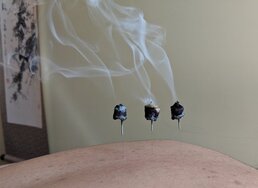 In Japanese, the characters 鍼灸 that we commonly translate as "acupuncture" actually refer to both "needles" and "moxa." Many Westerners have never heard of moxa, even if they have received acupuncture, since modern clinics often forgo it due to the inconvenience. But you will notice the moxa aroma right away upon stepping into Bridge Acupuncture. Why do we love fire medicine? In chemistry, a catalyst is an agent that is needed for a chemical reaction to take place. The right elements might be present for the reaction, but due to a lack of energy they will just keep hovering near each other indefinitely, satisfied with their current stable arrangement... until a catalyst shows up and "pow!" gets the action started. Moxa is like a catalyst in the context of acupuncture treatment, adding that energetic momentum needed for things to start changing in the body. ARE YOUR TENDONS GASPING FOR BREATH? TIPS TO REGAIN AND MAINTAIN HEALTH OF THE UPPER LIMB10/27/2019 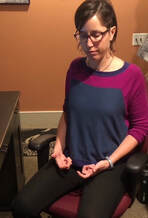 (By Grace Rollins, LAc) Tennis elbow, of course, isn't limited to tennis players. It's fairly common in the martial arts community, and I certainly warded off my own cases of the affliction during years of practice with a heavy sword. Rock climbers, rowers, golfers, weight lifters, manual laborers and even medical staff, parents and caregivers (who have to lift infants or patients) are often afflicted with tendon pain in the elbows, wrists or shoulders. In addition, there's been an interesting trend in our clinic with "spontaneously generated" tennis elbow, unrelated to athletics. "It just happened!" is a refrain I am hearing in an unusual number of cases. A big part of our job as acupuncturists is trying to get to the root cause of any condition, so it's not easy to ignore this kind of "mystery." 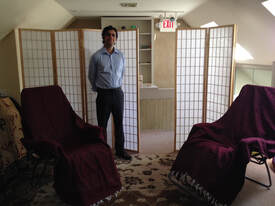 (By Paolo Propato, LAc) Having suffered from life-long sinus issues, I found myself at age 24 sitting in a dark room in Florence, Italy as a heavy set man with a big mustache burned moxa cones. The room filled with the strange smell of mugwort smoke. My thought was, “I am paying this guy to help with my sinuses and he is making smoke.” After the session he was smiling and said, “I can help you. It may take some time and you have to do some dietary changes but I can help you.” I still don’t know why I made another appointment, but in the end it saved me from my doctor's push for surgery. Fast forward to a few years later in Bucks County, when I found myself calling every acupuncturist in the tri-state area asking if I could hang out in their office. As fate would have it the only one kind enough to invite me in was close to home. Grace let me observe and eventually took me on as her assistant as I began to attend three years of grad school in northern New Jersey for acupuncture. The nights studying, long car rides to school, odd jobs for extra cash-- although tiring and stressful, there was never a moment I thought of stopping. All I wanted was to go deeper into this medicine. The more I stood by Grace's side and watched patients heal, the more I was fueled to keep going. The smell of moxa, so strange years ago, had infused into my cells. Certain moments stand out that have affected the way I practice. During my time at the student clinic in Montclair, NJ, I treated many cancer patients. CANCER: the word itself makes people shudder. Most of my classmates were much like myself, from lupus to colitis, they'd had some health issue and it was this medicine that had turned it around, inspiring them to study acupuncture. From my faith in their experiences and in Grace's clinic, I asked to take on these patients. I knew acupuncture could help, and it did. I remember a patient of ours with cancer who did a tribal African dance for a classmate's baby shower. 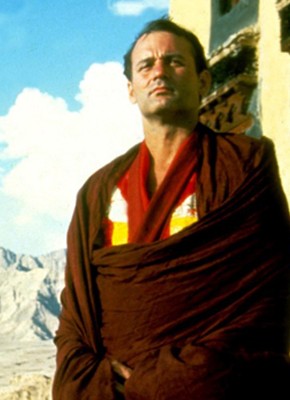 (By Paolo Propoto, LAc) A few weeks ago I watched a documentary called Bill Murray Stories. A filmmaker travels the globe to find out the truth about urban legends surrounding Bill Murray. These stories revolve around him doing out-of-the-ordinary activities with common folk, like showing up at a frat party and washing their dishes, crashing a wedding, or working as a cashier at a gas station/bait shop in the middle of nowhere. These seemingly spontaneous acts are great examples of moving ourselves in ways that feel uncomfortable and out of routine, and brought to mind an important Daoist concept known as ziran 自然, which can be translated as "spontaneity" or "naturalness." According to Daoist philosophy, the struggle to maintain ziran in one's life plays a role in the origin of pathology and disease. It's like a horse on a farm, saddled and fenced, versus the horse able to roam freely according to her nature. The longer she is subject to artificial restraints, the harder it is for her to rediscover her spontaneity were she allowed to roam free. If her nutritional, physical, mental and spiritual needs are met she may live a good ol’ life on the farm, but if she is locked up all day in solitude or overworked, pathology may ensue since these conditions are so far removed from her state of ziran. If we follow this pathology back to its beginning--the horse no longer being free to roam--we will find what is called in Chinese medicine “Qi stagnation.” Knowingly or not, the family you were born into, the location and time period, the experiences as a child and throughout life shape your thoughts, create your actions, and become habits and lifestyle patterns, which in turn affect your mental and physical health. 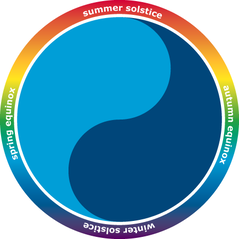 In classical Chinese medicine, our bodies are not seen as separate from the phenomena of nature. The transitions between seasons tend to be the most unstable, vulnerable times for human beings, when annoying symptoms and remitted conditions are more likely to flare up or be slow to recover. In particular, the transitions from Yang-to-Yin (Spring/Summer to Fall/Winter) and Yin-to-Yang (Fall/Winter to Spring/Summer) are difficult times for our health, and therefore a great time to harmonize with an acupuncture tune-up. 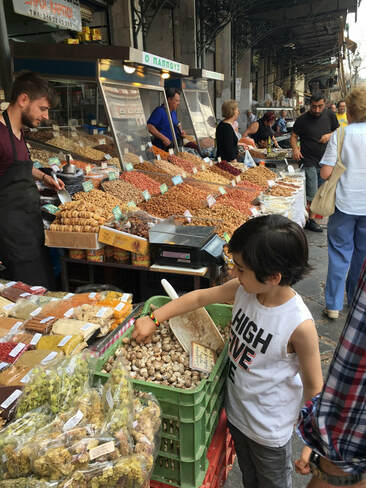 (By Paolo Propato) Many people have been asking me if they should start a ketogenic diet. This diet is sparking interest and having many question what is best for their health. We have vegan, vegetarian, paleo, mediterranean... the list goes on. Each has positive aspects which helped certain people lose weight or overcome a health issue. Yet this does not mean a particular diet will necessarily work for you. Someone that is anemic will not hear me advise to begin a vegan diet; nor would I prescribe a green juice fast to someone that been weakened by illness. Everything has its proper time and function. In acupuncture we treat the individual pattern of a patient no matter what the symptom. If five people come in with back pain, different points will be used for each of them according to what is being seen through the pulses and palpation. We may also needle points that are known empirically to be effective for a symptom. As in acupuncture, a healing diet needs to be tailored to individual needs. 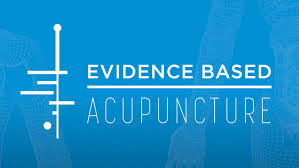 In this beautifully written report, "Acupuncture: An Overview of Scientific Evidence," studies examining the efficacy and cost-effectiveness of acupuncture for a variety of medical conditions are meta-reviewed and summarized. Some findings: * A 2013 network meta-analysis comparing physical treatments for osteoarthritis of the knee found that, when looking at high quality studies, acupuncture had the largest effect compared to usual care out of the conditions evaluated, out-performing exercise, sham acupuncture, and weight-loss. * A 2015 network meta-analysis comparing treatments in addition to exercise for shoulder impingement syndrome found that acupuncture was the most effective adjunctive treatment out of 17 interventions, outperforming all other adjuncts such as steroid injection, NSAIDs, and ultrasound therapy. * A 2016 comparison of 20 treatments for sciatica ranked acupuncture as 2nd most effective after the use of biological agents, outperforming manipulation, epidurals, disc surgery, opioids, exercise, and an invasive procedure called radiofrequency denervation, which came in last * In 2018, a network-meta-analysis found that acupuncture was more effective than drugs for treating chronic constipation and with the fewest side-effects. |
AuthorWrite something about yourself. No need to be fancy, just an overview. Archives
April 2024
Categories |

 RSS Feed
RSS Feed